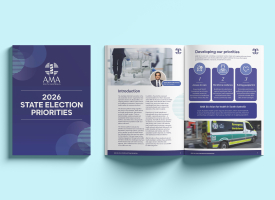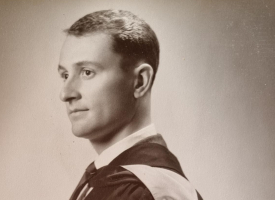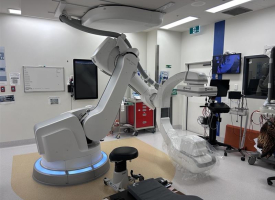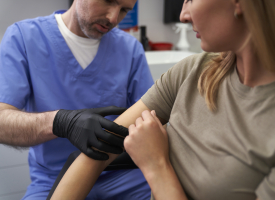Don’t let budget cuts gut hope
There comes a point when management decisions forced by budget constraints become indefensible.
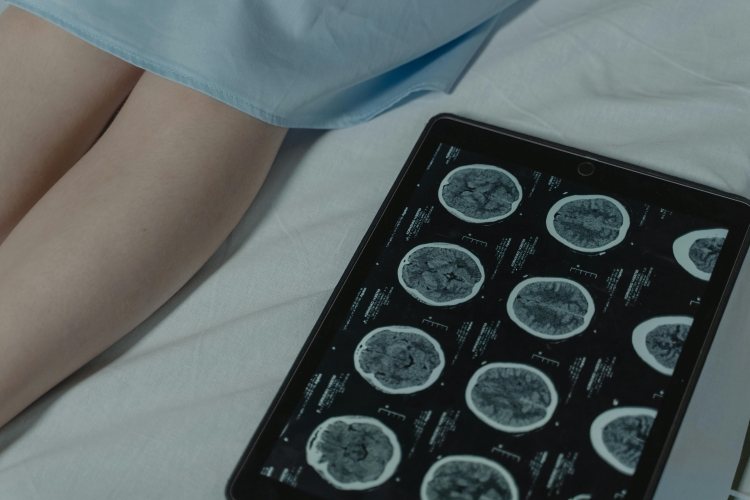
Politicians must either step up to find the resources required or justify their lack of action to those most vulnerable: cancer patients and their families.
The proposed restructuring and partial dismantling of the public Cancer and Blood Services (CaBS) Clinical Trials Unit (CTU) at the Royal Hobart Hospital (RHH) is a decision of this kind.
While it is not uncommon for governments to have to make tough choices in lean times, this one would hurt the very people our health system is meant to protect, cancer patients already burdened by the cruel hand of disease.
We must call this what it is: a shameful retreat from our duty to provide timely, equitable, and compassionate care.
The CTU delivers access to cutting-edge treatments and novel therapies. It is the lifeline that may offer not just more days but hope to Tasmanians facing a grim cancer diagnosis.
Clinical trials are how better treatments are developed, and the CTU has ensured Tasmania both contributes to and benefits from the knowledge gained.
That this service now faces losing more than 50% of its team and the very real possibility of closure should horrify every single Tasmanian.
It is a gut-wrenching prospect, especially when the cost of funding required to keep it going is less than a million dollars while it rebuilds its once self-sustaining income base.
To fail to act now is incomprehensible. If the CTU is diminished, cancer patients will suffer.
Already, Tasmanians face limited trial options compared to those living in larger states.
The loss of this unit will turn a trickle of interstate medical refugees into a steady stream. Families will be separated. Financial burdens will skyrocket. The critically ill will endure punishing travel schedules to receive the same chances already available to others.
Some patients won't be able to travel. They will be left with nothing but standard treatments that have failed them, and the knowledge that if they lived somewhere else, they might have had a chance.
What message does this send?
Do Tasmanians not deserve the same shot at life as those in Melbourne or Sydney?
And this isn't hypothetical. These aren't just statistics. These are people—our neighbours, colleagues, loved ones—fighting for time, for dignity, for hope.
When we talk about dismantling this unit, we are talking about telling a mother with metastatic breast cancer that she can't access a promising new treatment.
We are talking about denying a young man with relapsed lymphoma his only realistic shot at survival.
We are talking about pulling the rug out from under families already facing the unthinkable.
The CTU is more than a gateway to trials. It is a cornerstone of clinical excellence, a beacon that helps attract and retain the best oncology and haematology professionals. It supports research, training, and state-of-the-art patient care. Dismantling it sends a damaging message—not only to patients but to every clinician who chooses to practice in Tasmania. It tells them: Your innovation, your expertise, and your commitment to excellence are not valued here.
Worse still, should it close due to a lack of staff, it would make the RHH the only major public metropolitan hospital in the country without a dedicated clinical trials unit. This is not simply embarrassing. It is devastating. For a state already struggling with medical workforce shortages and health system pressure, this is a step backward from which we may not recover.
And for what? This is not a bloated, inefficient department that needs trimming. This unit, until recently, operated entirely self-sufficiently. Its current shortfall is the result of external factors—delays in research governance approvals, shifts in trial sponsorship, and increasing regulatory burdens—not mismanagement. Its ability to continue operating at all despite these pressures is a testament to the dedication and efficiency of its staff.
The refusal to provide modest bridge funding is short-sighted, penny-wise and pound-foolish.
Without the CTU, more Tasmanians will be forced to seek care outside of Tasmania. This will increase costs via the Tasmanian Medical Treatment Interstate and Overseas Travel Assistance Scheme (TMAAC), create fragmented care pathways, and ultimately erode the overall efficiency of our health system. Private options, such as those at the ICON Cancer Centre, will serve only a select few, deepening the inequity between public and private patients.
The heartache of this moment lies not only in what we may lose but in what we say about ourselves by allowing it to happen.
This is a call to conscience for those who wish to lead Tasmania.
You have the power—and the responsibility—to stop this.
Do not let a cornerstone of cancer care crumble due to a lack of short-term funding. Do not allow the flicker of hope provided by clinical trials to be snuffed out. Do not condemn vulnerable Tasmanians to second-tier care because the accounting didn't add up on paper.
Bridge funding must be provided. A longer-term strategy to ensure the CTU's sustainability must be developed. The commitment to uphold equity in cancer care must be reaffirmed—not just in words, but in action.
The people of Tasmania deserve better. Our cancer patients deserve better.
